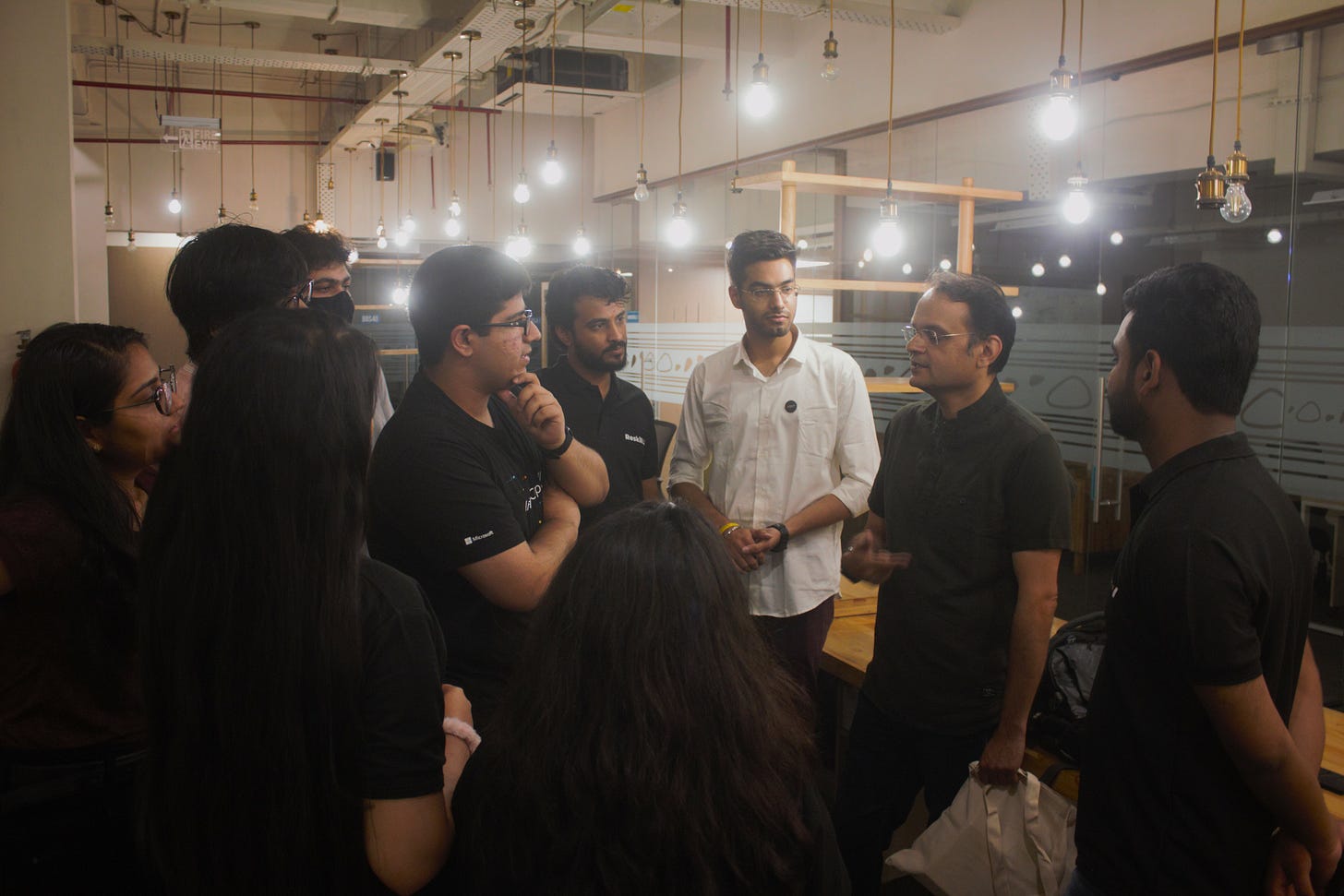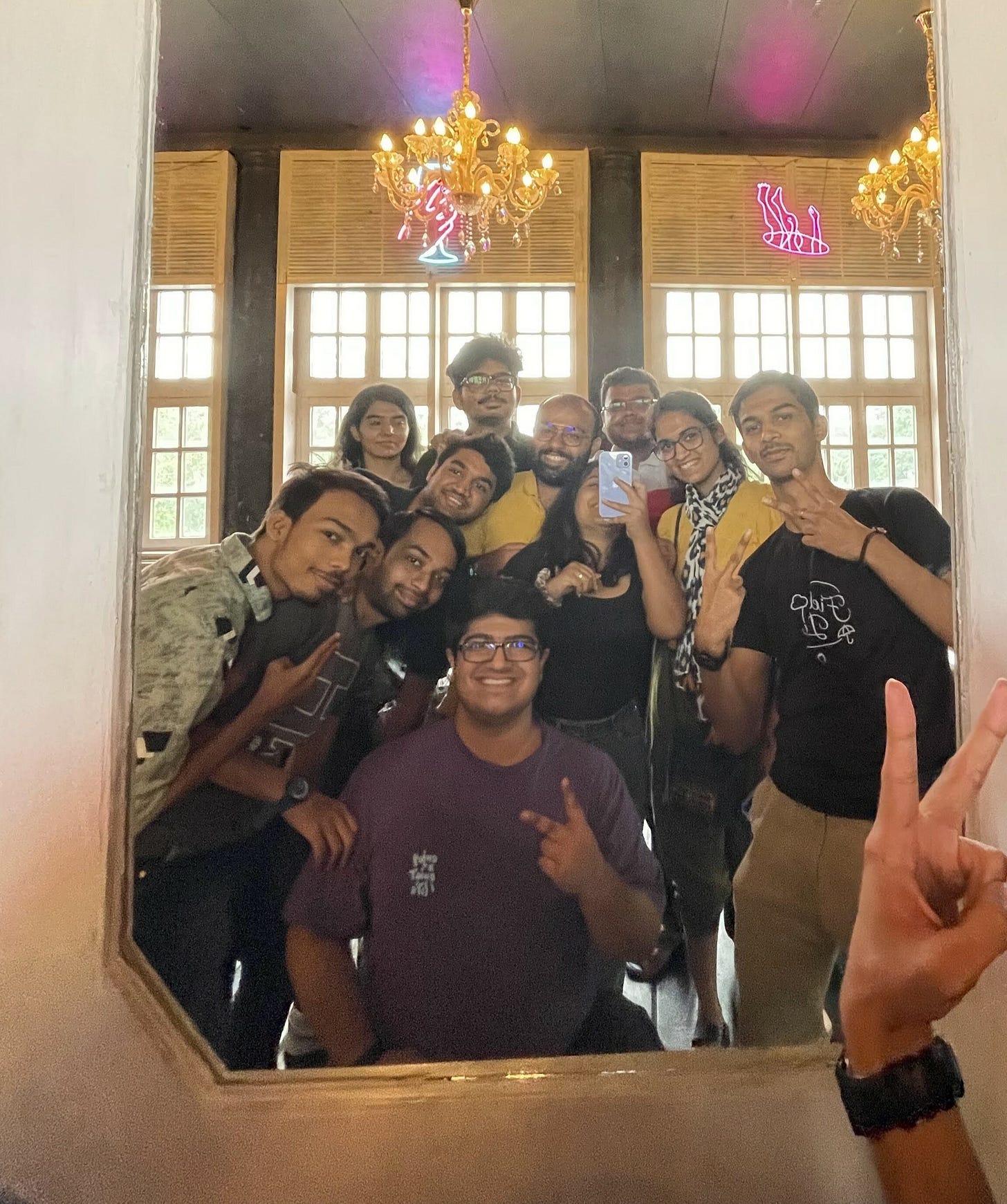The FOMO Within Communities
One of the things I'm grateful for, as we've moved forward to better times after two difficult years of the COVID-19 pandemic, is the return to offline communities. I have always thoroughly enjoyed meeting and interacting with people in tech.
Offline communities, however, are facing a new disease these days. I say this in the context of regional tech communities around me, but this isn't just any small disease. It did start as a joke, but has been spreading really fast among members of the tech community. This dangerous little disease that I am talking about is the Fear Of Missing Out or FOMO.
Our Community's Thoughts On This Problem
Before sharing my views, I wanted to understand what some of our peers from our local communities thought. So I shared a tweet in our little community to ask what folks thought about FOMO. Here were some rather intriguing responses:
Deekshita had some rather strong thoughts about how communities are losing their meaning because of FOMO.
Vraj shared his view about people joining student leadership programs just for branding.
Nirupama's perspective indicated why it is so urgent to discuss this problem right now!
How Is This FOMO Generated?
The start of this FOMO began with the return of offline community events. Two years after the pandemic began, we started seeing an upsurge in physical tech community activities. And why wouldn't we love them? Initiatives like these had enabled many students and professionals (me included) to network and learn from our peers regularly before the pandemic began. For us, this indeed was a welcome return.
However, what also happened as a result of these two years was that we now had two massive batches of students who entered college remotely. Many of these folks didn't get to spend time bonding with their college peers, let alone attend in-person community events. So while they genuinely appreciated and enjoyed these activities, the thrill of being present and connected with similar-minded people soon became a craving bordering on the edge of addiction.
Unfortunately, some people within these communities recognized an opportunity to build an audience by catering content glorifying the community life, showcasing everything from a lunch meeting to hanging out over coffee as a community meetup.
To understand why this is problematic, let me show you a couple of situations through pictures.
Here is a click of a discussion at the inaugural Azure DevDay organized by Reskilll in Noida in May. An actual community meetup.
Here is a click of some friends hanging out for lunch in New Delhi in June. Not a community meetup.
It's necessary to understand that these two are not the same. More than a few folks have misrepresented this factor to create a sense of exclusivity and showcase falsely inflated growth ceilings, which they then leverage to fulfill their agendas. It becomes a rather vicious loop for many of these folks because their relevance gets attached to this kind of content, and leaving the loop also means losing their audience. The desperation this has created has grown to a point where people have started disrupting legitimate meetups for social posts. Thus, the FOMO has created a rather unhealthy scenario for many folks looking to learn and network genuinely.
What Can We Do About This FOMO?
The FOMO of anything is no less than a trap; it reels you in with the promise of a glistening possibility and keeps you hanging with a desire for more. I have some recommendations, though, through which you can curb this FOMO.
Control the perspective at your gatherings
Community organizers must ensure that they maintain a sense of inclusivity that goes beyond just individual events. As independent community leaders, we are there to support all those who share a mission with our communities and initiatives. Of course, we need to respect our logistical limitations, but we must maintain equity in opportunities in our communities. If your community members believe that they all have the same opportunities to grow, they will have a far lower probability of falling into a panic every time a limited group from your community meets.
Objectively understand the value addition
It is necessary to look at each opportunity and ask yourself whether it will help you in your journey. Whenever I find any meetups, I spend some time analyzing what value it creates for me, and if there isn't enough, I don't attend, no matter who else is coming. The time saved is time I can use for something actually productive instead. That is my philosophy, it has worked well for me throughout my journey, and I highly recommend more of you to try it out.
Normalize not being present everywhere the crowd goes
Sometimes it feels like everyone you know or look up to is chasing the same goal or opportunity, but you aren't. It isn't that uncommon, and it is very much valid. From experience, I can firmly say that it's alright if you're doing something different from the rest of the world. Whether it's an activity, a meetup, a contribution, or anything else, you can decide where you want to participate and where you don't. So relax and little and enjoy where you are.
Final Thoughts
The truth is that there are ample opportunities in communities for you to participate and learn and grow. Leaving a meetup isn't going to change your life. It's alright to choose not to do what everyone else seems to be doing and not go where everyone else seems to be going. You're the only person who can decide what opportunity benefits you and what doesn't. So as long as you analyze those on your terms, no matter what your peers, organizers, influencers, or anyone else might say, you will be just fine.











